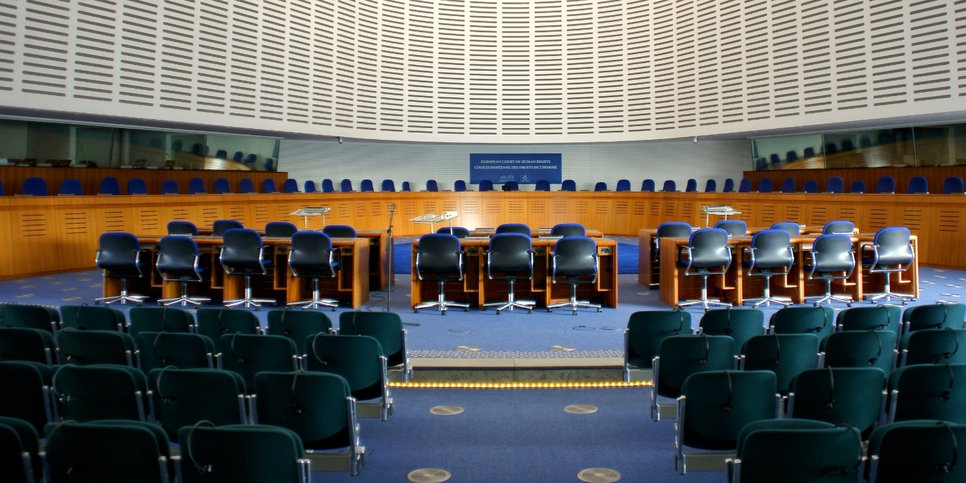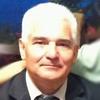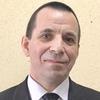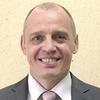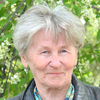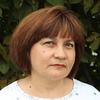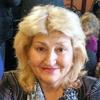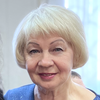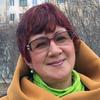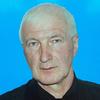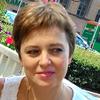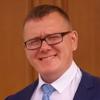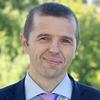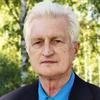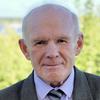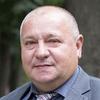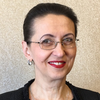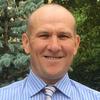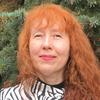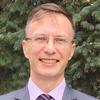Courtroom of the European Court of Human Rights in Strasbourg, France. Photo source: CherryX per Wikimedia Commons, CC BY-SA 3.0
Courtroom of the European Court of Human Rights in Strasbourg, France. Photo source: CherryX per Wikimedia Commons, CC BY-SA 3.0
"Unlawfully Prosecuted". ECHR Found Violation of Rights of 28 More Jehovah's Witnesses in Russia
European Union, Sakha (Yakutia), Crimea, Khakassia, Murmansk Region, Magadan Region, Smolensk Region, Kemerovo Region, Kirov Region, Oryol Region, Khabarovsk Territory, Penza Region, Novosibirsk Region, Krasnodar TerritoryOn October 16, 2025, the European Court of Human Rights considered the applications of 5 women and 23 men who faced prosecution because of their faith. The court declared searches, arrests, restriction of freedom, confiscation of property and charges of extremism for peaceful religious activity illegal.
Having considered the case of Markin and Others v. Russia, the ECHR stressed that the prosecution of Jehovah's Witnesses is "based on the impermissibly broad formulation and application of the extremism legislation." "Since the authorities failed to demonstrate that the applicants were involved in any socially dangerous activities of an extremist nature, their prosecution and conviction for peacefully practising the religion of Jehovah's Witnesses in community with others... did not pursue any legitimate aim or "pressing social need"," the judgment reads (paragraph 11).
Groundless persecution brought severe hardships to the lives of the applicants: some were imprisoned for years, despite their old age or disability, some were separated from their families, and the health of many with serious illnesses worsened. For example, the court sent Valentina Baranovskaya, 70, to a penal colony shortly after a stroke; Yuriy Savelyev, at the age of 66, ended up behind bars and spent almost 5 years there (9 months of which were in strict conditions); Sergey Britvin, who is disabled, was imprisoned for 4 years; Stanislav Kim and Nikolay Polevodov were convicted twice. At the time of the ECHR decision, some applicants were still in penal colonies: father of 4 Sergey Filatov, Aleksandr Ivshin, 68, Artem Gerasimov and Roman Baranovsky.
The case of Markin and Others v. Russia included 14 applications, initially filed separately between 2018 and 2022, but due to the similarity of circumstances, were combined into one. The applicants were: Roman Markin and Viktor Trofimov from Polyarny (Murmansk Region); Ivan Puyda, Konstantin Petrov, Sergey Yerkin and Yevgeniy Zyablov from Magadan; Sergey Britvin and Vadim Levchuk from Berezovsky (Kemerovo Region); Nataliya Sorokina and Mariya Troshina from Sychevka (Smolensk Region); Andrzej Oniszczuk, Maksim Khalturin, Vladimir Korobeynikov, Andrey and Yevgeniy Suvorkov from Kirov; Sergey Skrynnikov from Oryol; Igor Ivashin from Lensk(Yakutia); Sergey Filatov, Artem Gerasimov from Crimea; Nikolay Polevodov and Stanislav Kim from Khabarovsk; the Alushkin couple and Galiya Olkhova from Penza; Yuriy Savelyev from Novosibirsk; Aleksandr Ivshin from Kholmskaya (Krasnodar Territory); mother and son Valentina Baranovskaya and Roman Baranovskiy from Abakan.
The decision issued in October echoes other ECHR judgments defending Jehovah's Witnesses' practicing their faith. This time, the believers were awarded compensation totaling EUR 430,000. Taking into account the previous judgments, Russia is obliged to pay more than EUR 4,000,000 to the prosecuted Jehovah's Witnesses as compensation for non-pecuniary damage.
